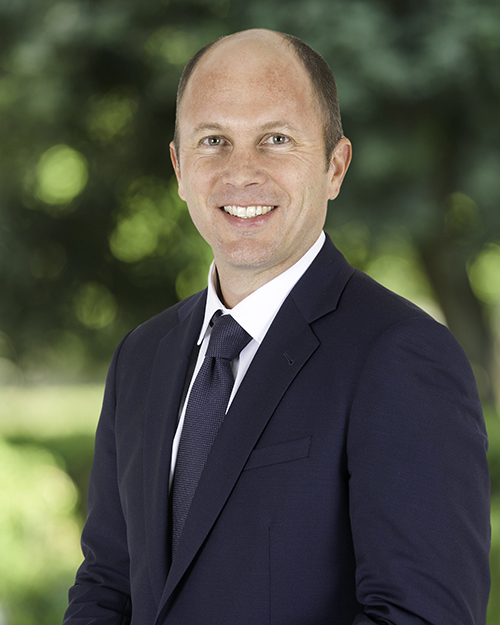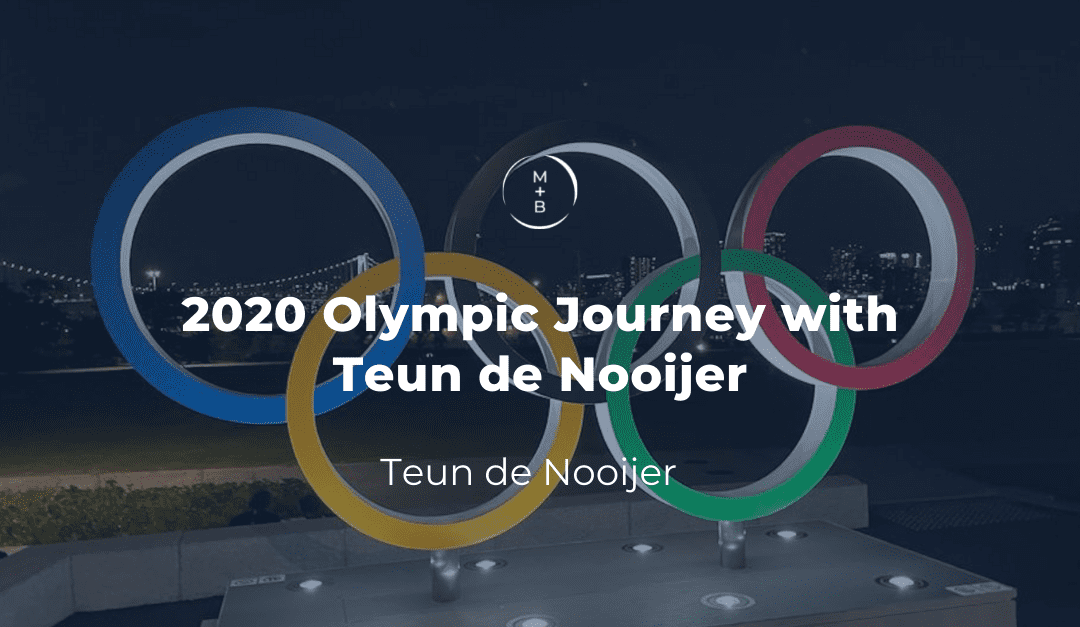The team at McDermott + Bull comes from a variety of backgrounds and interesting stories. One background in particular comes from our Europe office whose credentials are one of a kind. Teun de Noojier is a Netherlands field hockey legend and has been to five different Olympic Games and won several Olympic, European, and national titles. The International Hockey Federation quoted Teun as, “one of the most outrageously gifted hockey players the world’s ever seen…” It’s no surprise that Teun’s athletic IQ has taken him to the other side of the sidelines to coach the Women’s Germany Field Hockey team at this year’s Olympics! We sat down with Teun to get the scoop on his past Olympic experience, the team’s achievements, and his future in the Olympic Games.
Q: You’re considered a field hockey legend and have been to FIVE different Olympic Games and won several Olympic, European, and national titles. Tell us a little about your field hockey journey and how you got to the Olympics
T: Growing up in a small village, field hockey was a family affair. My two older brothers and parents played, and I was on the hockey club and played on the streets near our house with friends where I also played soccer and tennis. When I started playing field hockey, I was lucky because they were older than me and it was a battle to win, so it made for great practice. When I was nine, I became a member of the club and started to play 11 v 11 on Saturdays for seven years. At 16, I went to HC Bloemendaal, which was one of the best clubs in the country and still is. The same year, when I was 17, I was selected to the national team. Then, when I was 18, I played my first game at the World Cup in Sydney, Australia. It really changed my life when I joined the national team.
Q: You’ve traveled all around the globe to compete in the Olympics. What are some memories you can share with us?
T: Of course, the first Olympic Games is the most memorable, which was the ’96 Atlanta Olympic Games for me. To have it in the U.S. was unique because you typically go to a location where the sport is big for everyone, and in the U.S., it’s primarily a female sport. I’ll never forget when we beat Australia in the third game and the more experienced players on the team said, “Well, if we can beat them, then we could go all the way.” Even the goalie on the Australia team approached me and said, “Continue what you’re doing, because you’re playing fantastic.” After hearing that, I knew I needed to stay focused, and we could make it all the way. Apart from the games, the Run DMC and Ziggy Marley concert, as well as the Opening Ceremony, were unforgettable. When Muhammad Ali lit the Olympic flame at the Opening Ceremony, the stadium went wild. Ultimately, the most magical moments were the final match and afterward, when I collected the Olympic gold medal. Coincidentally, these games also happened to be where I met my wife, so I left with a gold medal and girflfriend in the end!
Q: Throughout the years, you’ve played for different coaches and had many mentors. What was the best advice you received?
T: When I started as a young kid, the best advice I received was to play with a clear head. It is important to have a clear head so that you can play freely, in the moment, and at your best. Coaches can bring tactics that you can learn from, but ultimately, you have to make your own decisions on the pitch.
Q: This year you coached the Women’s Germany Field Hockey team, the Die Danas. What was some advice you gave before they started their Olympic journey?
T: I gave them a bit of the same advice I mentioned above. The Olympics Games is the biggest tournament for them to play in, so I also reminded them that it’s important for them to focus on the game(s) and not get distracted. I would encourage them to focus on three things that they could bring onto the pitch and visualize. That mentality helped me as a player, and I think and hope it helped them in the end as well.
Q: The Die Danas made it all the way to the quarterfinals and lost to silver medalist Argentina. Tell us about that game and how the team took the loss.
T: It was a tough loss because we really felt we were ready for the game. We’ve played them a few times in the past year with some good results. We came in with a game plan, but unfortunately, we had an off day, and you could see it in the first few minutes. After the loss, the girls were devastated with the result, also knowing we could have been better. The hardest part has been looking back and knowing that we didn’t perform the way we know we could have.
Q: Tokyo 2020 was truly unlike any other Olympics, especially when you consider the ban on spectators attending the Games. How did that impact the players and coaches? How else did the pandemic impact their performance?
T: There was definitely an impact, as there’s nothing like having live spectators. The team and coaching staff were in a bubble, and the Olympic organization did a great job keeping everyone safe. The Japanese were also really welcoming and wanted us to have a good time. In previous years at other Olympic games, the biggest difference was the energy and vibe. No matter where we were, it would feel like a party. It was always a great motivating factor which was missing in this year’s Olympics.
Q: Tokyo is extremely rich in culture and is particularly known for being one of the world’s greatest food capitals. How was this brought into the Olympic Village?
T: In the Village, there was a variety of food that was prepared for the athletes and coaches that ranged across the world. The most popular line was, of course, the Japanese food! It was a pity that we weren’t allowed to go into the city and experience the culture there, but considering safety was the main priority, it means I’ll have to go back and experience it another time.
Q: The 2024 Summer Olympics are held in Paris. Can we expect to see you coaching for another Olympic medal?
T: Maybe. My contract with the Women’s Germany team has officially ended, so if I get a call to coach a team, I’m open to it. However, McDermott + Bull is my main priority.

Teun de Nooijer
Partner
Teun serves as Partner at McDermott + Bull Europe, focusing on growing the European business with his experience in business development.
Prior to joining McDermott + Bull, Teun had a very successful athletic career in field hockey as a record international player. He participated in five different Olympic games and won several Olympic, European, and national titles. Teun brings consultancy experience from his time at VODW and Clifford Chance. He is an active coach in both the corporate and sports worlds since 2009.
Teun studied commercial economics at the University of Applied Sciences.










